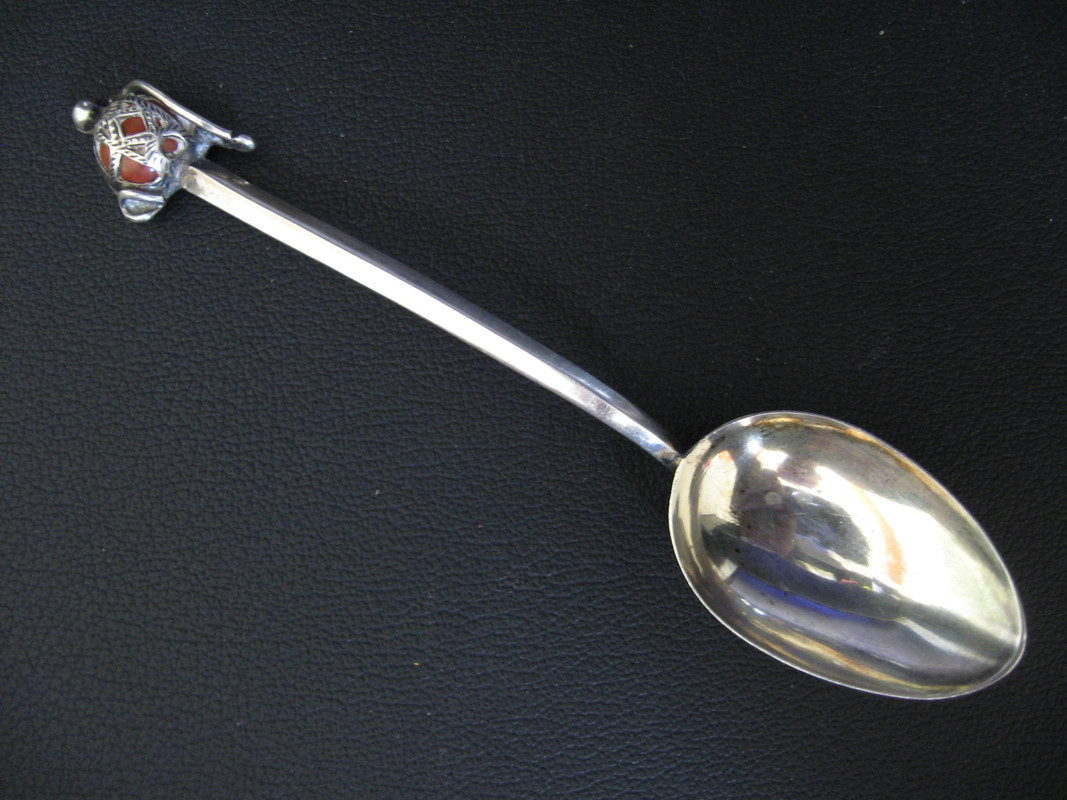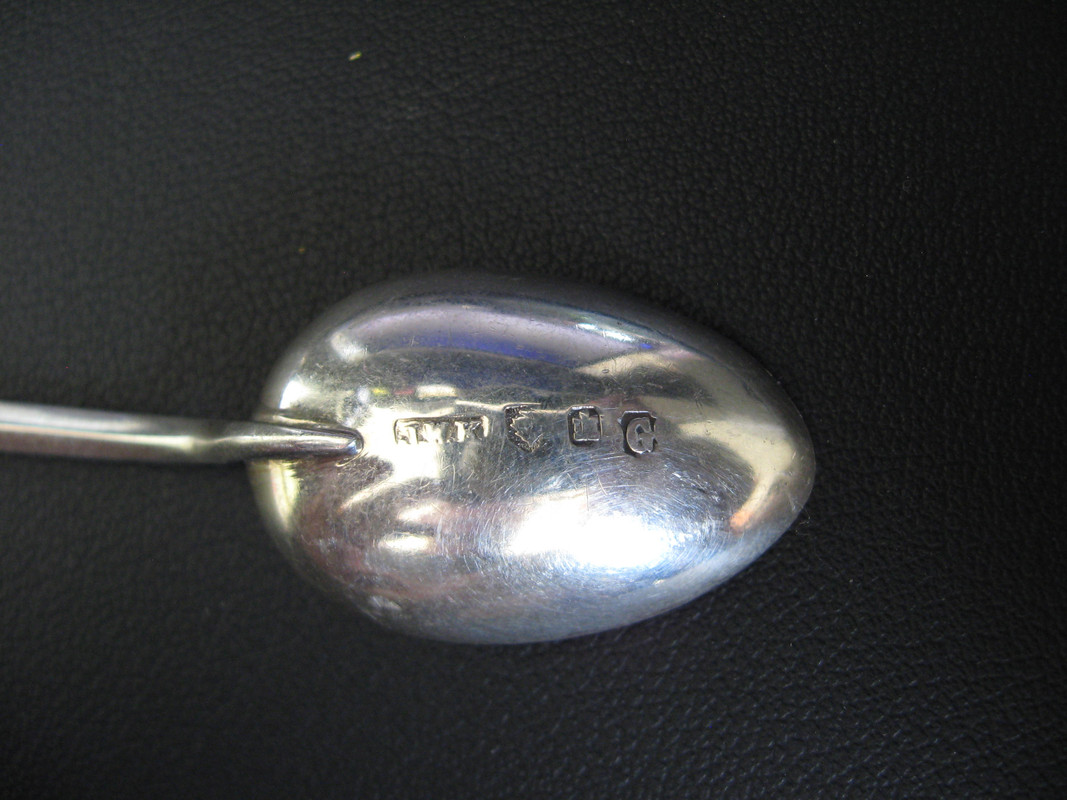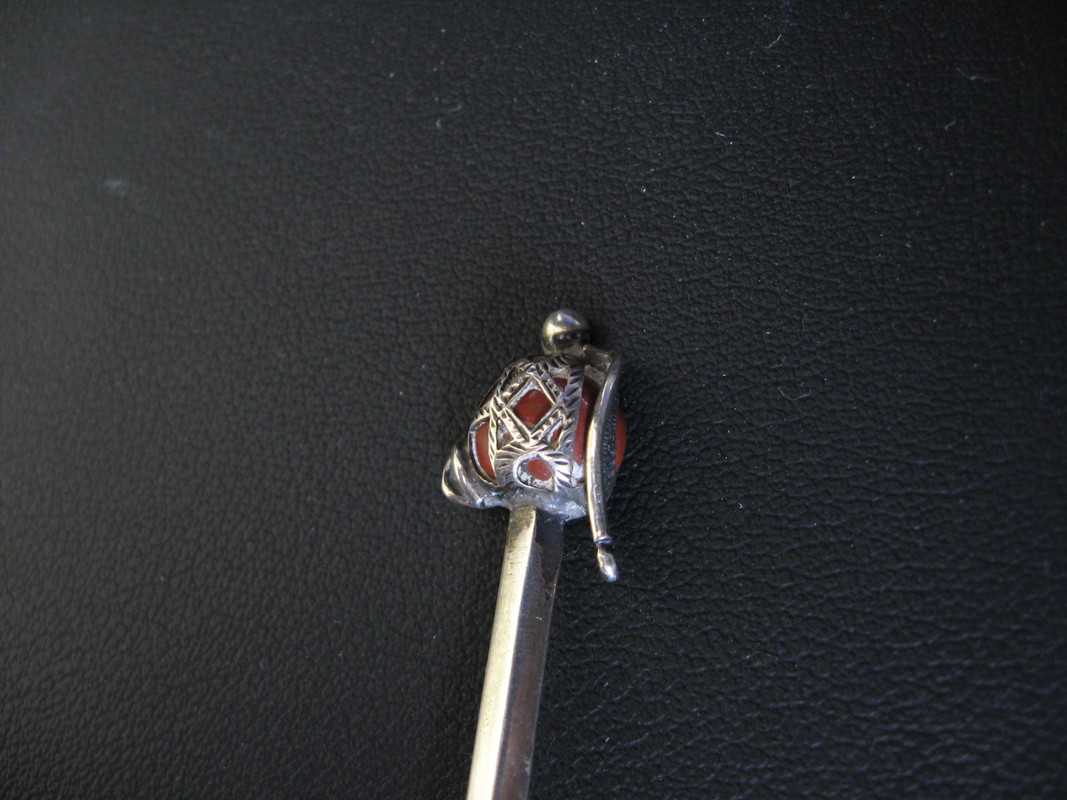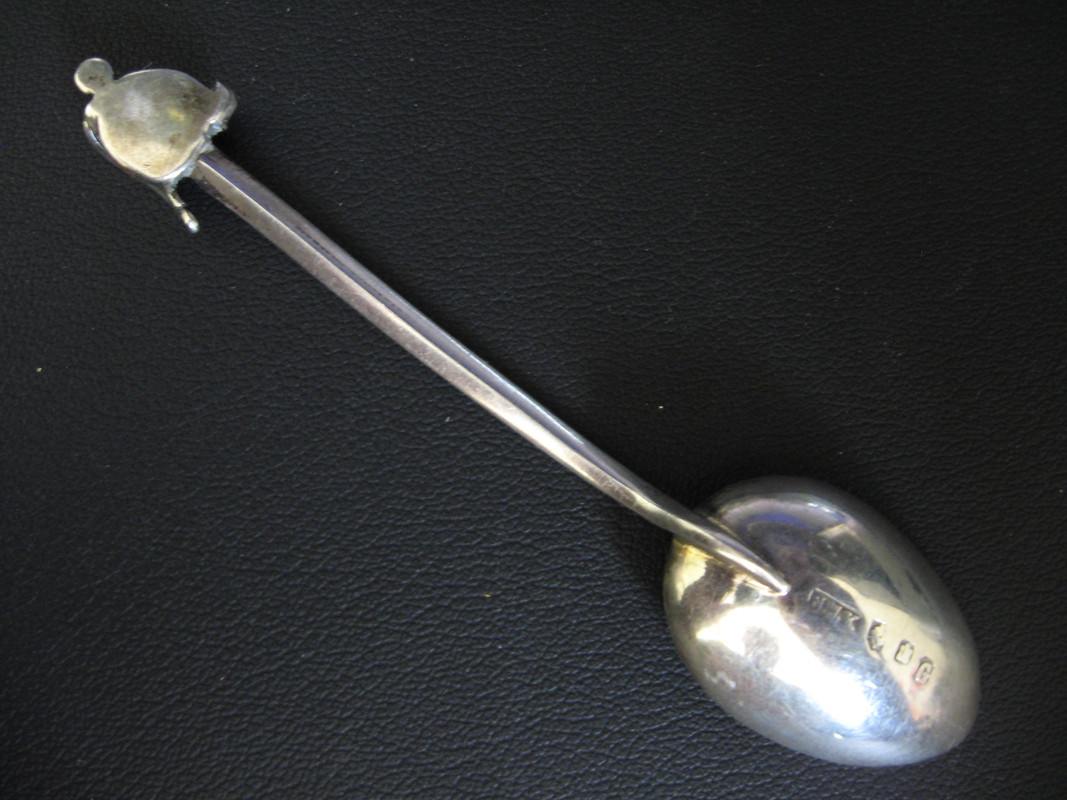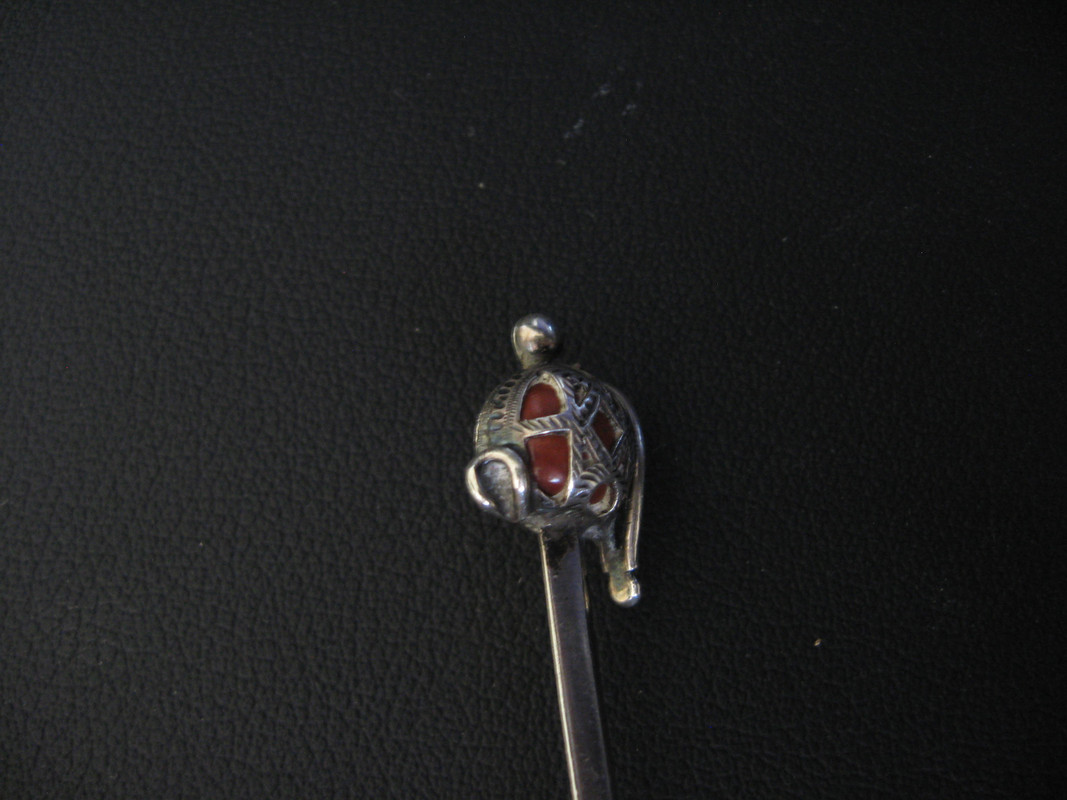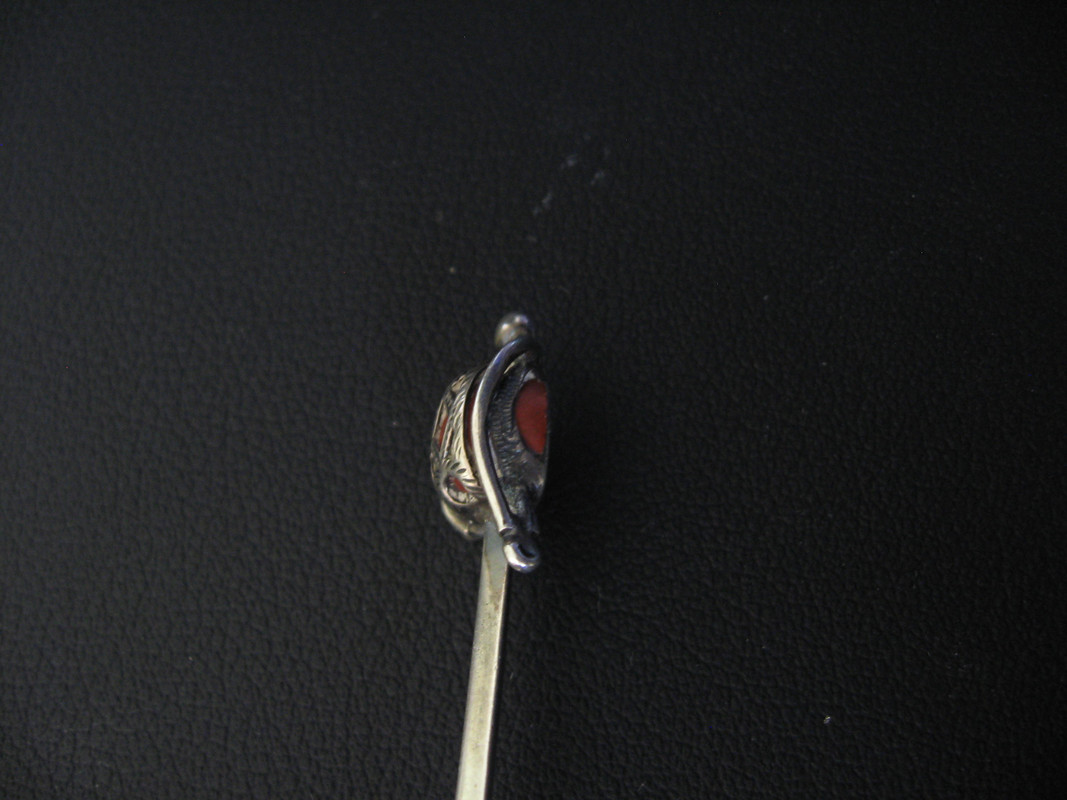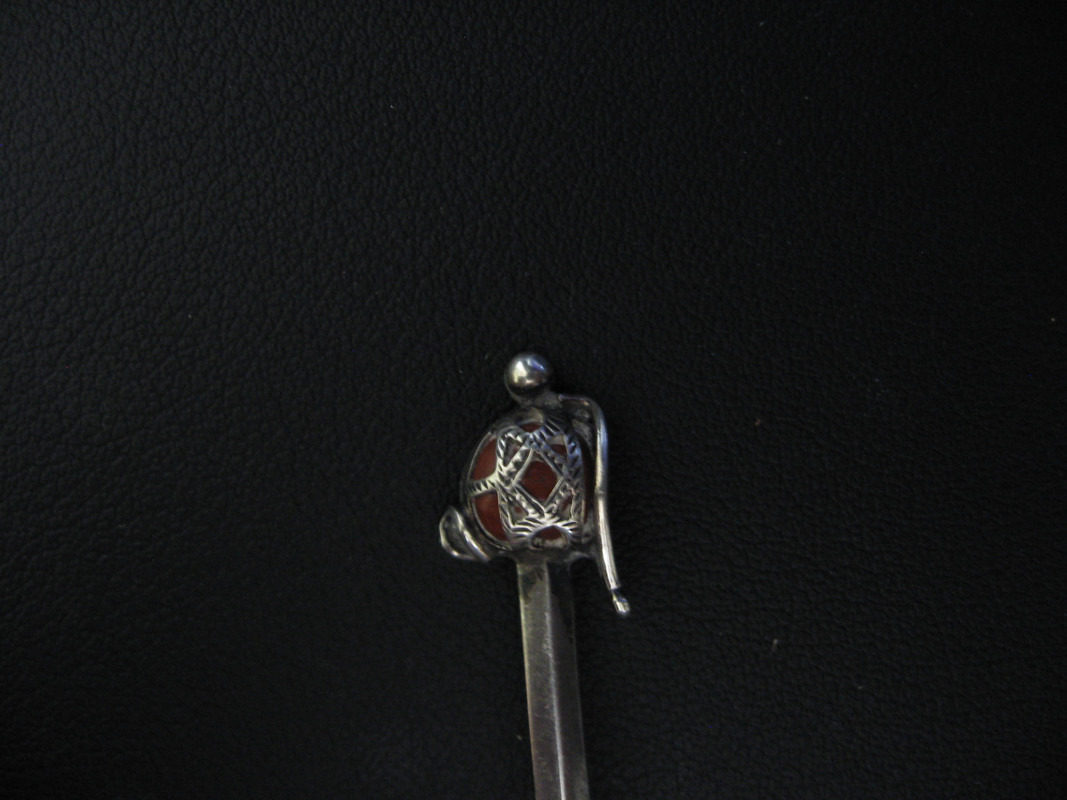https://www.925-1000.com/dlc_edinburgh.html
And another site's chart shows it as 1912:
https://www.silvermakersmarks.co.uk/Dat ... -1930.html
The maker's mark is "JWK", and I have not been able to identify who it is. My main questions, though, are as follows:
- Is it a collector spoon?
- There is a reddish-brown, even orange, stone of some type encased in sterling at the tip -- what type of stone is it?
- Is the shape at the tip significant, and if so, what is it?
Regards,
Dave
